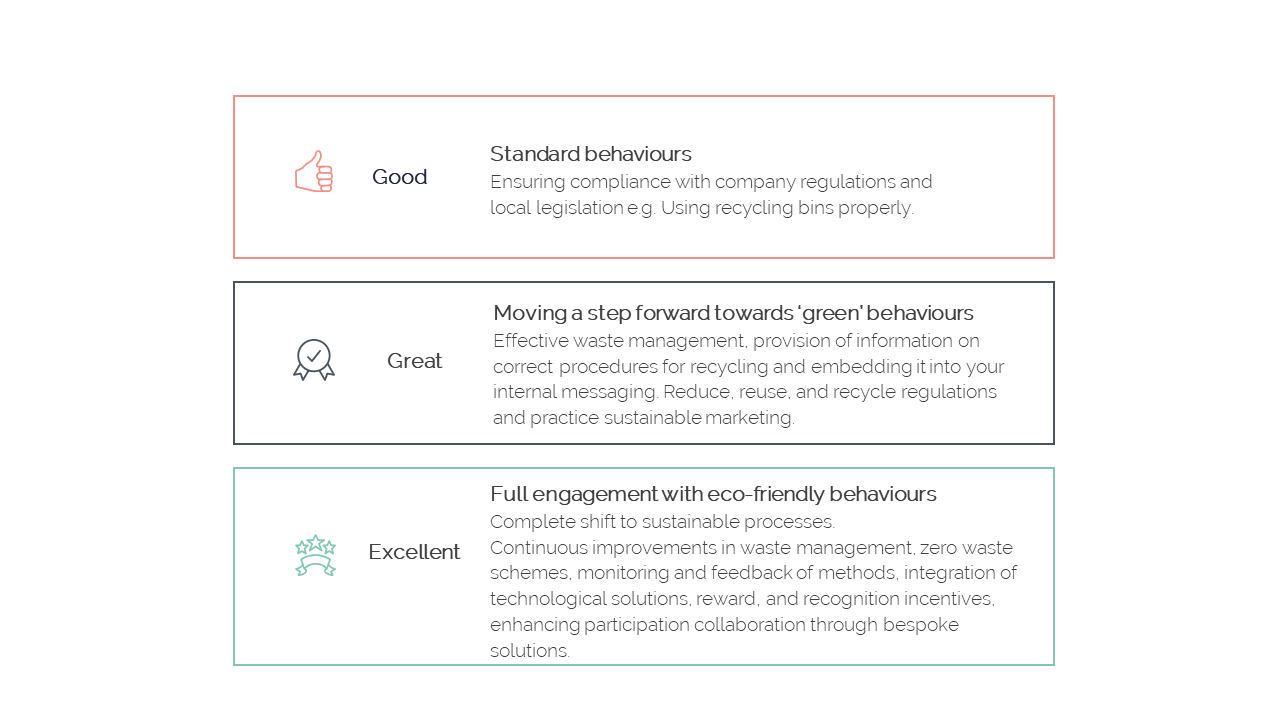Posts
A fresh chance to Go Green?
Over these past few months, we have all had time to think and reflect on the way we live our lives. Covid-19 has led to the realisation that globalisation has its consequences, and the way the pandemic has forced many of us to pause our routines has brought some issues into focus. “Essential” has a new meaning; be that an essential worker or an essential item. All those habits we thought were impossible to change or superficial needs we fulfilled all too easily have been adapted or completely turned on their heads. With all the extra time, people have taken up hobbies and crafts that enable sustainability or resourcefulness – DIY around the house, upcycling furniture or clothing, sewing masks, growing herbs, fruits, and vegetables. While we are ready to embrace a return to normality, whatever that may look like now, how much of what we have learned or adopted from the past few months will stay with us? Are we at a turning point for attitudes and values across society?
Throughout the different stages of the pandemic businesses across the world have also had to revaluate the way they operate, many requiring significant changes. Now that many of us are gradually returning to offices, organisations are having to redesign company policies, practises, and approaches. In some circumstances, entire offices themselves. If office life and employee well-being are undergoing review and evolving, it feels like an ideal opportunity to turn the page and maybe start afresh in other areas too.
We have seen social media relishing news of reduced emissions, the reappearance of wildlife in urban areas and showing off newfound resourceful hobbies, so could businesses now treat this as a much-needed nudge? The support is there for companies to take on the opportunity to integrate more sustainable practices into corporate culture and drive much needed collaboration, participation, and commitment towards a better environment, on an individual level and as a community.
Employers often implement staff wellbeing schemes, operational process improvements and other forms of workplace development to enhance health and safety. Why not also take an opportunity to review the environmental impact of their organisations and their sustainable footprint? Why not set yourself a corporate sustainability challenge? From small daily actions to broader company-wide schemes, we can all help to reduce the current environmental impact and work together for a greener and healthier future.
Getting started: Commitment, Motivation, and Productivity
One of the biggest psychological hurdles companies find themselves struggling to overcome is the concept that they are detached from environmental issues. Executive leadership teams often feel recycling efforts do not exactly concern them; it feels like a giant effort and they have little to gain especially when it is behind closed doors. Recycling or sustainable living is either a trendy statement to make, or something for after working hours. However, there are significant benefits to be found when committed to correctly – supporting and developing a better connection with local communities, motivating your employees towards a common cause and boosting morale, providing opportunities to reduce costs, and improving brand image and reputation.
Ideally, to move towards this ‘fresh start’ companies should move from good commitments to excellent, embedded behaviours as can be seen in the diagram below. We want to move away from environmental commitment being a chore to genuine, altered ECO behaviours. But how do we get from good to excellent? Commitment, motivation, productivity.
Moving the dial on behaviour change
Getting People Behind the Movement
Becoming a proactive eco-friendly company will benefit overall business productivity by improving employee morale, satisfaction, and comfort, as well as their capacity to process knowledge and information. Research reveals that businesses can benefit from a 50% reduction in employee turnover when employees are engaged in corporate social responsibility (CSR) programs. The Deloitte Millennial Survey from 2019 shows how it can also aid attracting and recruiting talent from emerging generations, who “show deeper loyalty to employers who boldly tackle the issues that resonate with them the most, such as protecting the environment,” alongside their number one concern being climate change and protecting the environment. Additionally, sustainable practices have been shown to create a positive impact on the actual working environment itself. Biophilic design is a great example of this. Improved natural lighting, use of natural materials, acoustic comfort and optimisation of spaces with a human focus are amongst different elements of this. These types of adjustments have been shown to result in productivity increases of 8%, 13% increase in levels of wellbeing, heightened creativity, and reduced absenteeism.
Educating staff on the ‘whys’ and ‘how’s’ of being sustainable and the importance of protecting the environment should be a fun and engaging activity and become a core value of a business. Ultimately, it is individual employee actions that will add up to change. Employees are often named “a business’ greatest asset”; in any scenario where employees are depended on to deliver and embody behaviours, whether delivering excellent customer service or driving a business towards its objectives, it is vital they are engaged and committed to what they are doing. It is important to move away from the idea of it being an extra task for them to fulfil as well as their actual role. To genuinely engage the individuals and teams within the organisation, it is important to remember that not one size fits all. Different people are motivated by different things, and this needs to be considered when thinking about how you can improve behaviours in your workplace.
However you personalise it, an eco-friendly focussed solution could take into account your employees’ motivations and profiles, would work towards getting everyone on board, supporting your company’s commitment to going green, and can improve organisational results and progress towards making an impact.
Firstly, environmental awareness and activism are arguably no longer a ‘fringe’ issue. Companies should strive to do better and go beyond the age-old office posters reminding employees to put empty cans in the recycling bin. But how?
- Create a sense of belonging: The sense of belonging and being connected to other people is very underrated. When you feel that you are part of something and create relationships, that is much stronger than any extrinsic reward, like a badge or a free coffee for every pro-eco action executed. Encourage employees to work together towards goals as it will help people feel less ‘on the spot’ to begin with, and it will also go towards reinforcing a sense of collaborating as a community for a better shared environment. Begin with an open ideation phase, in a space where everyone feels invited, involved and comfortable discussing opinions and targets. Utilise communication tools to share round updates on team progress or newsletters that provide insight on office efficiency as well as advice and nudges.
- Recognise the individual: Team spirit is hugely positive for driving participation and results, but individuals also need to feel in control of their own behaviours and goals. Getting everyone involved means taking different needs into account, in order to create solutions and objectives everyone will want to adopt. Some people might prefer to be told more information about recycling, others may prefer utilising office QR codes that they can scan with their smartphones on their own accord to receive more information about recycling and the company’s different initiatives, ask questions in an interactive FAQ, or vote for office based sustainable initiatives such as what causes should they support or what the weekly sustainable focus should be. Allow space for people to contribute in a way they feel able to. For example, you cannot expect everyone to stop coming to work by car, as it simply will not be feasible for everyone. Instead look at allowing for individual success within any strategy as well. Give alternatives and options for people to work towards, such as recycling, bringing in their own mugs and reusable water bottles. If empowered, people will see it less as a burden or chore and more a conscious decision they are able and willing to take responsibility for. Being able to take direct action that will result in real change plays a major part in helping people feel self-determined.
- Create a sense of purpose: The advantage of integrating eco-friendly objectives into the workplace is that they already have a strong sense of purpose behind them. There is a global awareness, a breadth of materials and education available, plenty of activism to draw inspiration from and reinforce the sense of purpose – improving the environment for all our collective and individual benefit. We have already mentioned how sustainability is often split into two groups – those who are already fully committed and driven towards change, and those who know they could do more but maybe feel it is out of their reach. Sustainability has the benefit of a prominent, powerful, all-encompassing objective behind it – create a better world for us all and future generations. Don’t focus on solutions that just draw attention to the issue, focus on drawing attention and correlation to people’s simple contributions. For example, this week in the office we correctly recycled 1kg of plastic bottles and cups which are a major contributor to litter in local ponds and rivers. Last year 100 ducklings got stuck inside plastic bottles – thanks to your work recycling, this number will be less this year!
- Recognise progress: When employees get a glimpse of what eco-friendly actions can achieve, on a personal and collective level, this motivates them to develop more ideas and shift attitudes. Over time this will result in successful social and environmental benefits, together with economic returns for the company if their sustainable strategy becomes an effective reality. Quite simply, people feel good when other people see and acknowledge their hard work. Promoting innovative initiatives that have come from employees is a great step towards improving how you recognise positive behaviours and measure the journey you’ve taken so far towards a positive future. To encourage these behaviours to continue in the long term, progress should be recognised and, in some cases, rewarded. This does not necessarily mean a pay rise for the person who recycles the most plastic in the office. It could be a workplace incentivisation scheme where employees receive points redeemable for votes towards charitable causes, following the example of supermarket token schemes. . Or it could be a technology-based solution that recognises individual contributions towards a more sustainable workplace, tracks individual and team actions and progress, collects ideas and suggestions on future improvements, and integrates game design to drive more collective involvement and engagement.
Eco-Marketing
Sustainable and meaningful marketing is extremely important for a business as part of their objective to deliver the overarching message to consumers and clients, reinforcing their commitment with actions and words. As things currently stand, many sustainable marketing schemes involve substantial financial investment, however in the long-term companies can see a greater return on said investment, saving on costs as well as improving office efficiency overall. For instance, installing solar panels in your office can significantly reduce your taxes by more than 30% of the installation cost and would cut your energy bills in half. However, the key advantage to eco-marketing is the impact on brand image, and the connection you make with people by directly addressing what they tend to seek nowadays: environmental and ethical solutions. “Ikea” is often a great example in this space, by innovating the products they provide while also matching with public gesture, such as their anti-plastic initiative where they launched two large boats into the River Thames to clean up and remove any plastic waste. The plastic collected was then used to build a sculpture later displayed at their Greenwich sustainable store.
“The recent UN Climate Action Summit and simultaneous Global Climate Strikes, found that the importance and perception of sustainability among consumers is increasing. The research confirmed 37% of consumers are seeking out and willing to pay up to 5% more for environmentally friendly products and are actively changing their shopping behaviour to do so” – Environment and Energy Leader, 2019
When finding your feet in eco-marketing, all it takes is to just start by stepping back from tried and tested traditional methods and asking the question ‘is this sustainable’? If for instance, we use the example of a conference or fair, many businesses will use this opportunity to give out free products to visitors as part of engaging in the social-networking experience and selling the company’s vision. However, as generational values and priorities evolve and individuals become even more aware of the current ‘sustainability challenge’, it is important to ensure that the products being offered are in line with eco-friendliness. Shifting from promoting a branded plastic bottle to an aluminium bottle would be a great simple change and make an impressive contribution towards reducing waste and unsustainable products. For example, the cosmetics company “Lush” use small black plastic pots as packaging which, once used, can be returned to the shop as part of their in-house closed loop recycling scheme. In exchange they give clients a free mask for every empty pot they return. This initiative creates a direct contact between the customers and the businesses’ environmental values, plus both parties are contributing to reduce plastic landfill waste.
A key element in enhancing the sustainability of a company’s marketing is through experiences rather than an item. Instead of producing informational leaflets and forms a good alternative would be to set up scannable QR codes that could invite people to a portal where they can interact with your company. Or an app where you can collect points based on eco-friendly shopping habits and receive information about sustainability and recycling – a great valuable and memorable experience that will more likely engage customers and make them brand ambassadors.
A third of consumers (33%) are now choosing to buy from brands they believe are doing social or environmental good. – Unilever International Study 2016.
It is becoming easier and actually more imperative for companies to use sustainability as a way of engaging with their customers. By working with dynamic marketing skills, you can attract the large numbers of people already invested in making a change, increase awareness within your existing customer base, leading to a completely fresh way to interact and communicate across your outreach schemes. Let your customers and clients know what you are doing, through social media and newsletters and they will come to see your communications as helpful and valuable, rather than exhausting or pestering. Concepts such as eco-friendly product giveaways, waste pick-up collection weekends or online sustainability courses could really make a difference. Make the most of modern technology and also be open to customer input on what they believe is important or their main interests. This could be done on social platforms by including a survey – an interactive, engaging, and relevant way of getting a customer’s attention and commitment.
Acknowledging sustainable behaviours and becoming an eco-friendly business will bring rewards and results. Engaging with sustainable marketing and customer experience will be the ripple effect to boosting a company’s morale, productivity, efficiency and overall client and employee satisfaction. Furthermore, introducing new sustainable measures in the workplace could be the catalyst that helps encourage actions to go beyond the office and into everyone’s homes and social circles, expanding “green” mindsets and creating positive, sustainable habits. We often talk about wanting to be the change in the world, but there is no reason we should feel the pressure of doing it alone. By designing exciting solutions that will support companies or communities in getting started, once hearts and minds are won over, the rest will then quickly follow and crucially, be maintained. It all comes down to improving understanding to break down the myth that it will be more complicated than current approaches, and developing easy, achievable habits with alternative initiatives and behaviours. As we all look to making new starts and return to normality, we should bring with us and grasp onto opportunities to collaboratively work towards a better, greener future, as individuals, as communities, and as organisations.
This post was researched and prepared by Patricia Wiggett Canalda, University of Manchester, during her work experience with Motivait
UK Offices
Newcastle
The Core 5.22
Newcastle Helix
Bath Lane
Newcastle upon Tyne
NE4 5TF
+44 191 495 7340
Spain Offices
Madrid
Av. de Bruselas, 13
Ed. América
28108 Alcobendas
+34 91 425 86 57



